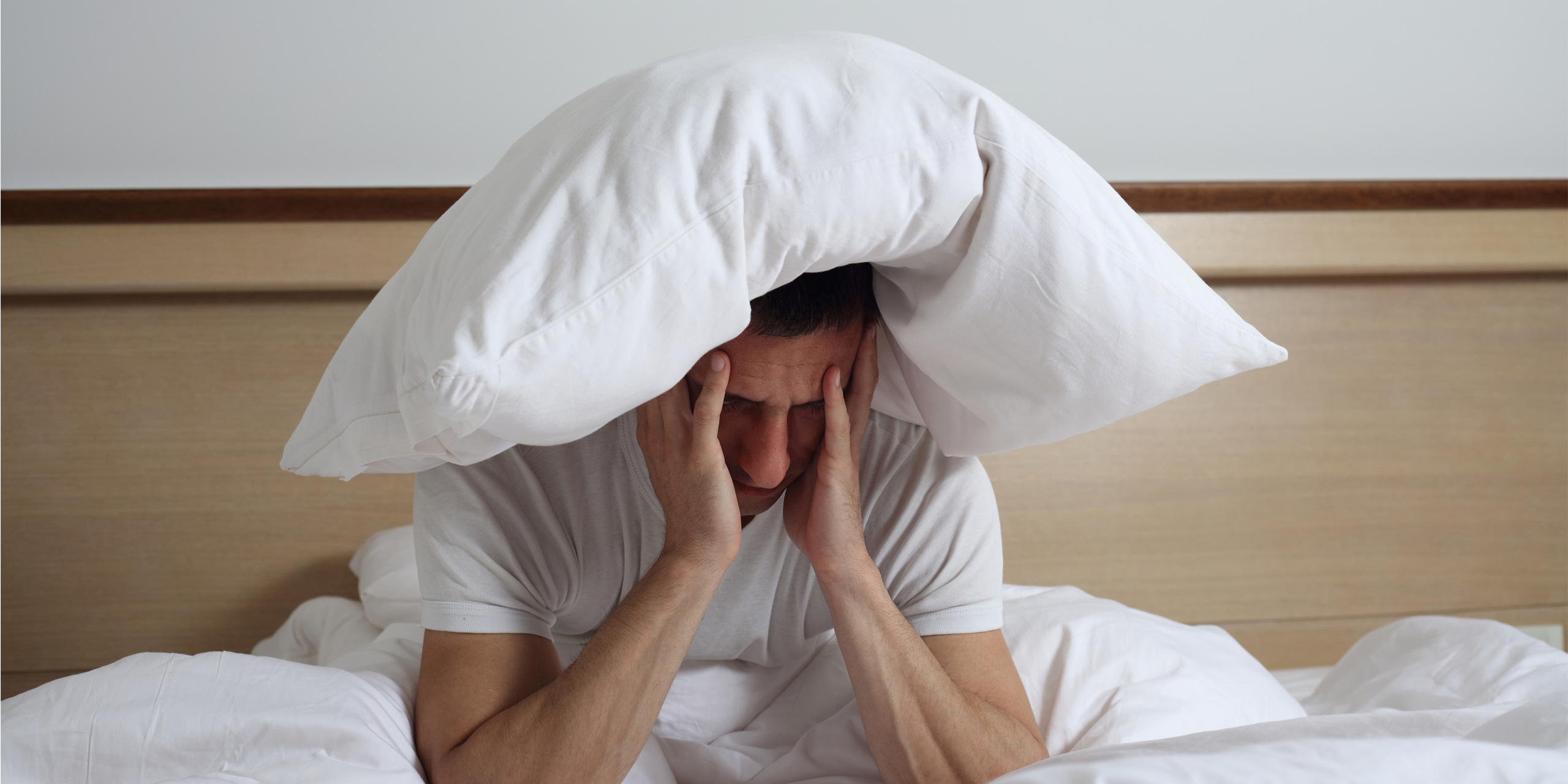Why Can’t I Fall Asleep (5 Reasons You Have Difficulty Sleeping)

Tossing and turning in bed, staring at the ceiling, counting sheep in vain; sound familiar? Many Americans have trouble falling asleep. In fact, one-third of Americans say they lie awake at least a few nights each week. What’s this attributed to? One possible explanation could be time change fatigue.
But sometimes having trouble falling asleep can be linked to some of our lifestyle habits. In this article, we’ll explore some possible reasons for this common sleep problem before we move onto the practical remedies and tips.
Trouble Falling Asleep: 5 Reasons Why You Can’t Sleep
1. Inconsistent sleep schedule.
If you don’t go to bed and wake up at the same time every day, you simply cannot get the rest your body and mind need. A consistent sleep schedule will synchronize your body’s internal clock, so you feel sleepy at a regular time every night.
2. Too much light exposure before bed.
It’s easy to zone out in front of the TV or your smartphone after a day of work, but when you’re exposed to blue light in the evening, it can disturb your sleep cycle. Since this light emitted from electronics can delay your sleep onset and cause you to lay awake in bed, try a adding blue light screen protector to your device to reduce the effects.
3. Too much caffeine.
While it may seem obvious, caffeine is a sneaky stimulant that often interferes with sleep. Consuming too much of it can lead to staying awake in bed for hours.
4. Stress.
Stress and worry from events in your personal or professional life might cost you precious sleep at night. Overthinking, being anxious, or just stressing over things you can’t change activate might lead to chronic stress and interrupted sleep.
5. Exercising too late.
Sometimes we just have to fit in exercise whenever we can, but certain times of day can be costly to our rest. Working out too close to bedtime can be overstimulating, causing us to lay wide awake when we should be slipping softly into sleep.
6 Ideas for Falling Asleep Fast
We’ve got a few practical and easy ways to fix your sleeping problems and start falling asleep fast every night, starting tonight! If you’re looking for a product that could help, check out these sleep solutions tested and scored by sleep experts, selected to help you fall asleep easier!
1. Take a warm shower.
A warm shower or bath in the evening can get you in the right state for a solid 8-hour sleep. That, combined with sleeping in a cool room, is considered good sleep hygiene.
2. Dim the lights at least 1 hour before bed.
Smart devices tend to keep us awake and suppress the production of melatonin, a hormone that’s important for your sleep-wake cycle. Make sure you remove these kinds of disturbances from your bedroom. Start by dimming the lights or using a bedroom night light at least an hour before you go to sleep, and limit the use of smart devices at that time too. You can also try blue light blocking glasses if you find yourself looking at electronics in the evening.
3. Stop drinking caffeine after 2 pm.
Though you may be seeking an afternoon pick-me-up, it can come back to haunt you when you get into bed. Caffeine has a half-life of 6 hours, so it can end up staying in your bloodstream for a lot longer than you’d realize. We recommend taking an afternoon walk, sipping on sparkling water, or eating a high protein snack like almonds in place of downing a coffee or energy drink. Even some teas and sodas have notable amounts of caffeine in them, so be sure to read your drink labels carefully in the late afternoon. There are also some great caffeine alternatives you can try to help!
4. Take time to relax in the evening.
Evenings should be your wind-down period, so try your best to let go of your worries and stresses for the day at night. Instead of stressing out over tomorrow’s meeting, you can try some relaxing activities such as reading, aromatherapy, journaling, listening to a podcast, or even try a coloring book for adults!
5. Exercise in the morning or at least 4 hours before bedtime.
You don’t want to stimulate your metabolism and increase your heart rate too close to bedtime. Moving your daily workout to the earlier parts of your day will make you feel good and tired when bedtime rolls around, thus allowing you to drift to sleep faster.
6. Practice good sleep hygiene and prioritize sleep.
Last but certainly not least, make your sleep health a priority. This is the best tried and true way to get into better sleep habits and in turn, be able to fall asleep faster with fewer tosses and turns. Understanding your sleep hypnogram can also help you figure out exactly when you’re missing sleep in the night.
Now that you know why might be having trouble falling asleep, as well as a few solutions to try, you can start stepping in the right direction tonight to make a big difference for tomorrow!